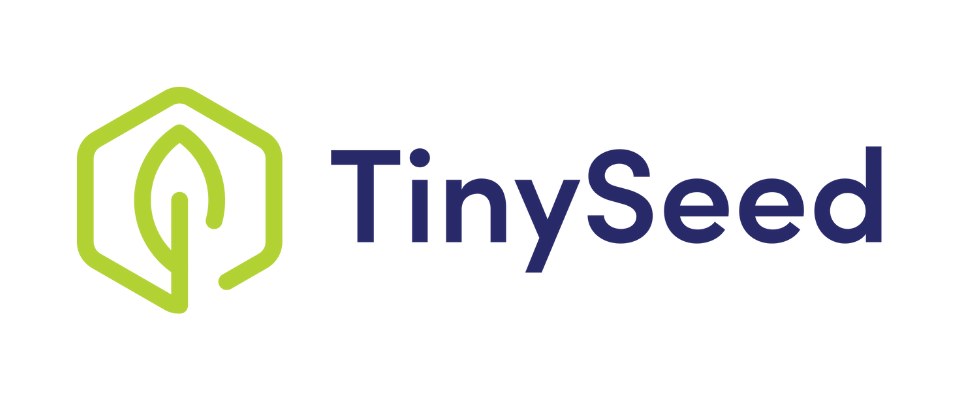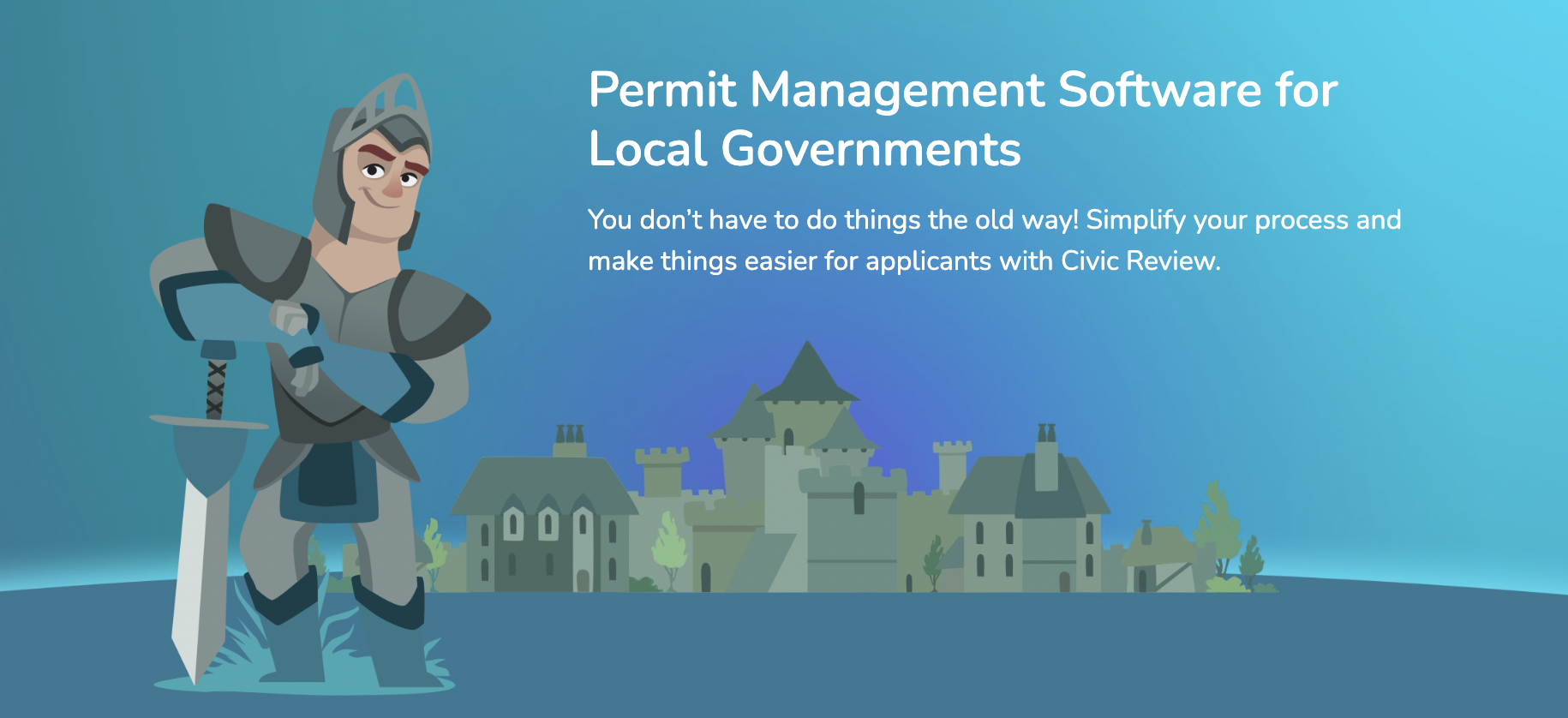Meet John Reynolds from Civic Review
Q: Can you introduce yourself and your startup?
A: Sure, I’m John Reynolds, the founder of Civic Review. We specialize in government permitting and licensing software. Essentially, our platform is designed for cities looking to modernize their processes. With Civic Review, a city can handle applications for things like building permits and business licenses entirely online, from submission to tracking approval workflows and even collecting fees. Our goal is to streamline these essential government processes, making them more efficient and accessible for both city officials and residents.
Q: What inspired the idea for Civic Review?
A: Civic Review was initially a side project while I continued my freelance work to support my family. As the startup began to gain traction and reached a point where I could consider working on it full-time, I saw TinySeed as an opportunity to accelerate that transition. I had applied to TinySeed a few times previously without success, but I didn’t give up. In 2021, my persistence paid off when I applied again and was finally accepted into the TinySeed program. This acceptance marked a significant turning point for Civic Review, providing us with the resources and support needed to focus on the project full-time.

Why TinySeed?
Q: How did TinySeed become involved with Civic Review?
A: Civic Review was initially a side project while I continued my freelance work to support my family. As the startup began to gain traction and reached a point where I could consider working on it full-time, I saw TinySeed as an opportunity to accelerate that transition. I had applied to TinySeed a few times previously without success, but I didn’t give up. In 2021, my persistence paid off when I applied again and was finally accepted into the TinySeed program. This acceptance marked a significant turning point for Civic Review, providing us with the resources and support needed to focus on the project full-time.
How a Founder Gets In
Q: Can you describe the TinySeed application process?
A: The application process for TinySeed was quite straightforward and non-threatening. It involved filling out a brief application form that required some basic numbers and data about our startup. However, the primary focus for TinySeed seemed to be on identifying companies showing real growth potential and founders who are deeply committed to their business. TinySeed is particularly interested in startups not necessarily aiming for the traditional venture capital route but rather those looking to build a sustainable and profitable business. This approach resonated with me because, while Civic Review has the potential for significant growth, becoming a ‘unicorn’ isn’t my ultimate goal. My vision aligns more with creating a solid, profitable company that sits between an ‘indie hacker lifestyle’ or becoming the next big tech sensation. TinySeed’s philosophy and approach to funding fit perfectly with my objectives for Civic Review.
Funding Through TinySeed
Q: What was the funding experience like with TinySeed? Did your company receive funding?
A: Yes, we received funding upon our acceptance into TinySeed. This financial support was substantial enough to allow us to make some significant advancements. With the funding, I was able to hire two people, which was a crucial step in scaling our operations. These hires played a pivotal role in the growth of Civic Review, enabling us to not only cover their salaries but also to expand our capacity significantly. Without TinySeed’s funding, I might not have taken such a bold step to grow our team at that time.
Q: Can you share the amount of funding and the equity details?
A: I’m not at liberty to disclose the specific amount of funding we received or the equity details. However, TinySeed’s website indicates that they typically fund startups with amounts ranging from $120,000 to $220,000. This amount can vary depending on the number of co-founders. As for the equity percentage, I’m not able to disclose the individual terms of my agreement with TinySeed. Currently, their website states that in exchange for the funding, they receive between 10-12% equity..
Experience in the TinySeed Program
Q: What was a typical day like in the TinySeed program, and what did the program entail?
A: The TinySeed Accelerator program kicked off with an off-site retreat in Scottsdale, Arizona, where my cohort and I spent about three days together. This retreat was an excellent introduction to the program, featuring mastermind sessions, presentations, and various off-site activities. The emphasis on community and mentorship was a significant factor in my decision to join TinySeed. Unlike traditional venture capital paths, TinySeed offers a unique blend of capital, community, and mentorship, which was more aligned with my values and the growth trajectory I envisioned for Civic Review. The program is structured as a one-year, virtual remote accelerator, punctuated with retreats and gatherings, often coinciding with the MicroConf conference.
Q: How does your experience compare to a friend who chose the traditional venture capital route?
A: While traditional venture capital can fuel rapid growth, my journey with TinySeed provided a different kind of value that was crucial for me, especially as a solo founder. The sense of community and having a network of fellow founders and mentors to learn from has been invaluable. This “brain trust” and the relationships built within the TinySeed ecosystem have offered support and insights that go beyond mere financial investment. For me, the benefits of being part of this close-knit community have been a significant aspect of my positive experience with TinySeed, underscoring the importance of choosing a path that aligns with one’s goals and preferences for their startup’s growth.
Seeking More Engagement from TinySeed
Q: What improvements could TinySeed make, or was there anything that disappointed you?
A: Honestly, I’ve been quite satisfied with TinySeed and the support they’ve provided. However, one aspect I anticipated differently was the level of pressure from the managing partners. Joining TinySeed, I didn’t expect the kind of pressure typical of venture capital, but I did look forward to some form of proactive, healthy” pressure to drive growth and accountability. TinySeed operates with a more hands-off approach, allowing founders to steer their companies as they see fit. I’ve learned that to receive more direct feedback or encouragement, I need to initiate contact with the general partners and share my challenges. This approach wasn’t a disappointment but rather an adjustment to my expectations. It taught me the importance of being proactive in seeking the kind of motivation and pressure that can help accelerate growth.
Q: Why did you seek more pressure from TinySeed?
A: As a solo founder, the dynamic of motivation and accountability differs significantly from that of startups with multiple founders, where co-founders naturally push each other. I craved that external force to set and achieve ambitious goals, akin to what you might experience with a co-founder. Being part of TinySeed, I hoped for more direct challenges and encouragement, having someone push me to reach milestones like a million ARR within the year. I’ve found that this type of motivation is available, but it requires me to actively seek it out from the general partners or peers in the program. This proactive approach to seeking guidance and challenge is crucial for maintaining the momentum and growth trajectory of a startup, especially for solo founders who might otherwise set their own pace in isolation
Weighing the Trade-off Between Equity and Funding in Accelerators
Q: Can you discuss the trade-offs between receiving funding (and giving up equity) versus participating in an accelerator that doesn’t provide funding or take equity?
A: The decision between joining an accelerator that requires equity for funding and one that charges a fee without offering financial support is crucial. Accelerators that charge for participation might not align their success with the startups’ outcomes, as their primary goal is to profit from the fees. On the other hand, accelerators investing in startups have a vested interest in the companies’ long-term success, aligning their incentives with the founders’. This alignment makes it more appealing to join an accelerator that takes equity because it ensures that their success is directly tied to your company’s performance. The partnership formed through this investment goes beyond the program, providing lasting advice and support that benefits both the accelerator and the startup.
Q: Is giving up a part of your company for investment worth it?
A: When an accelerator invests in your company, you gain more than just financial backing; you gain partners who are as invested in your success as you are. This relationship extends beyond the duration of the accelerator, offering ongoing advice and support that is mutually beneficial. The value of having advisors who are directly incentivized to help your company succeed cannot be understated. This makes the exchange of equity for investment and mentorship not just a fair trade but a strategic one, facilitating growth and long-term success.
Impact of the Accelerator on Company Growth
Q: Do you attribute your company’s current status to completing the accelerator? Is there a direct link between your participation in the accelerator and where your company stands today?
A: Yes, there’s a significant correlation between our participation in the TinySeed accelerator and the growth we’ve experienced. During the official year we spent in the accelerator, we saw more growth than in any previous period. This surge can largely be attributed to the expansion of our team from one to three members, which directly impacted our ability to scale our operations. The decision to hire additional staff, a move that significantly catalyzed our growth, was made possible by the confidence and financial support we received from TinySeed. This clear link between the accelerator’s support and our company’s growth underscores the value of the program in providing not just the funds, but also the confidence needed to make pivotal business decisions.
Post-Accelerator Support from TinySeed
Q: How has TinySeed continued to support you after the accelerator program ended? How has your relationship with them evolved?
A: Even after the official end of the accelerator program, my relationship with TinySeed has remained largely unchanged in terms of the support and resources available to me. I still have the opportunity to attend the retreats and participate in monthly mentor calls, which are invaluable for continuous learning and networking. TinySeed maintains a Slack channel that keeps the lines of communication open for ongoing advice and collaboration among alumni. The only real change post-accelerator is the conclusion of the specific playbook series of instructional videos tailored for our cohort, to make space for new companies. Other than that, the benefits of being part of the TinySeed network continue, allowing me to still reap the advantages of the program’s support and community.
Advice for Potential TinySeed Applicants
Q: What advice would you offer to someone considering applying to TinySeed or other accelerators?
A: For those thinking about applying to TinySeed, it’s important to understand that they are looking for companies showing growth and the ambition to scale beyond a solo operation. If you apply once and don’t get accepted, don’t be discouraged. Persistence is key, as it’s quite common for successful TinySeed participants to have applied multiple times before getting accepted. This perseverance not only demonstrates your commitment to your business but also aligns with TinySeed’s ethos of supporting growth-oriented startups. Keep refining your application, business model, and growth strategy, and continue to reapply, showcasing the progress and potential of your company.

